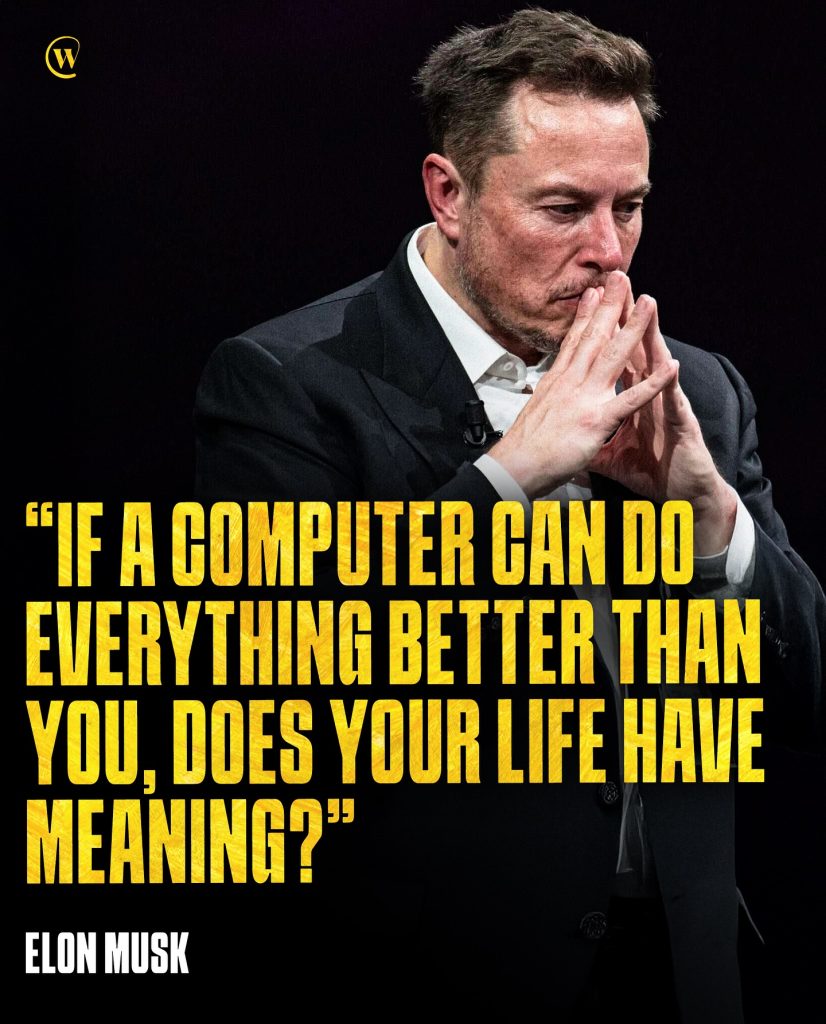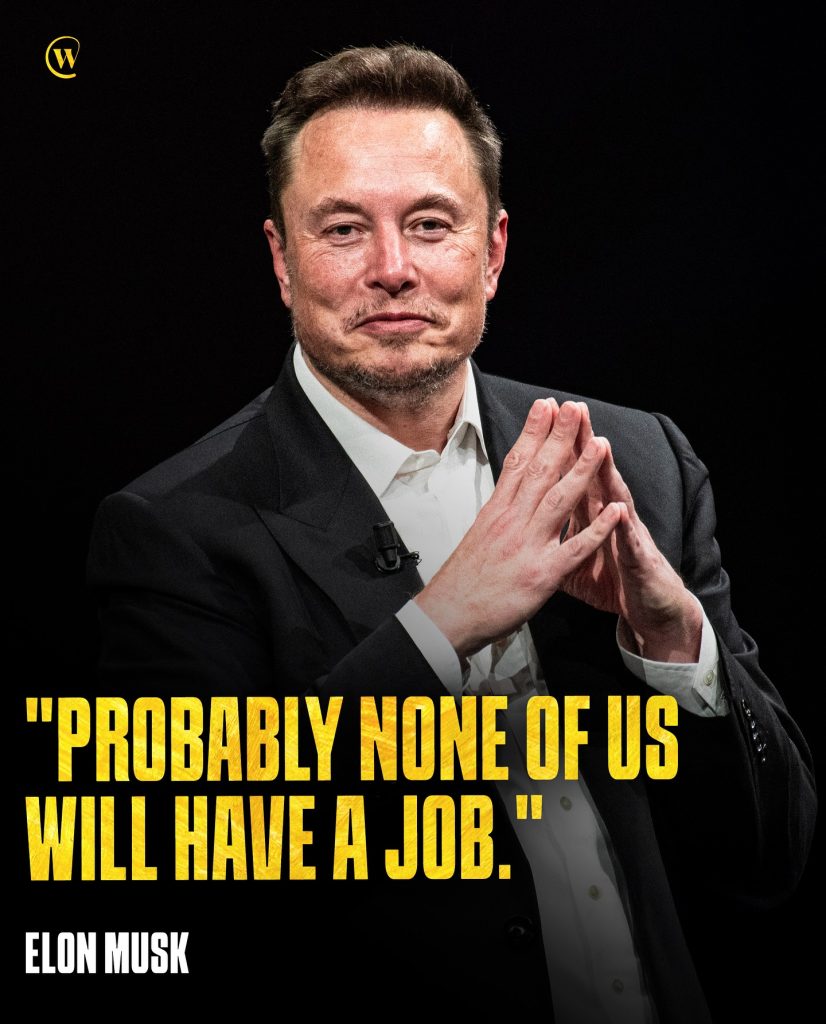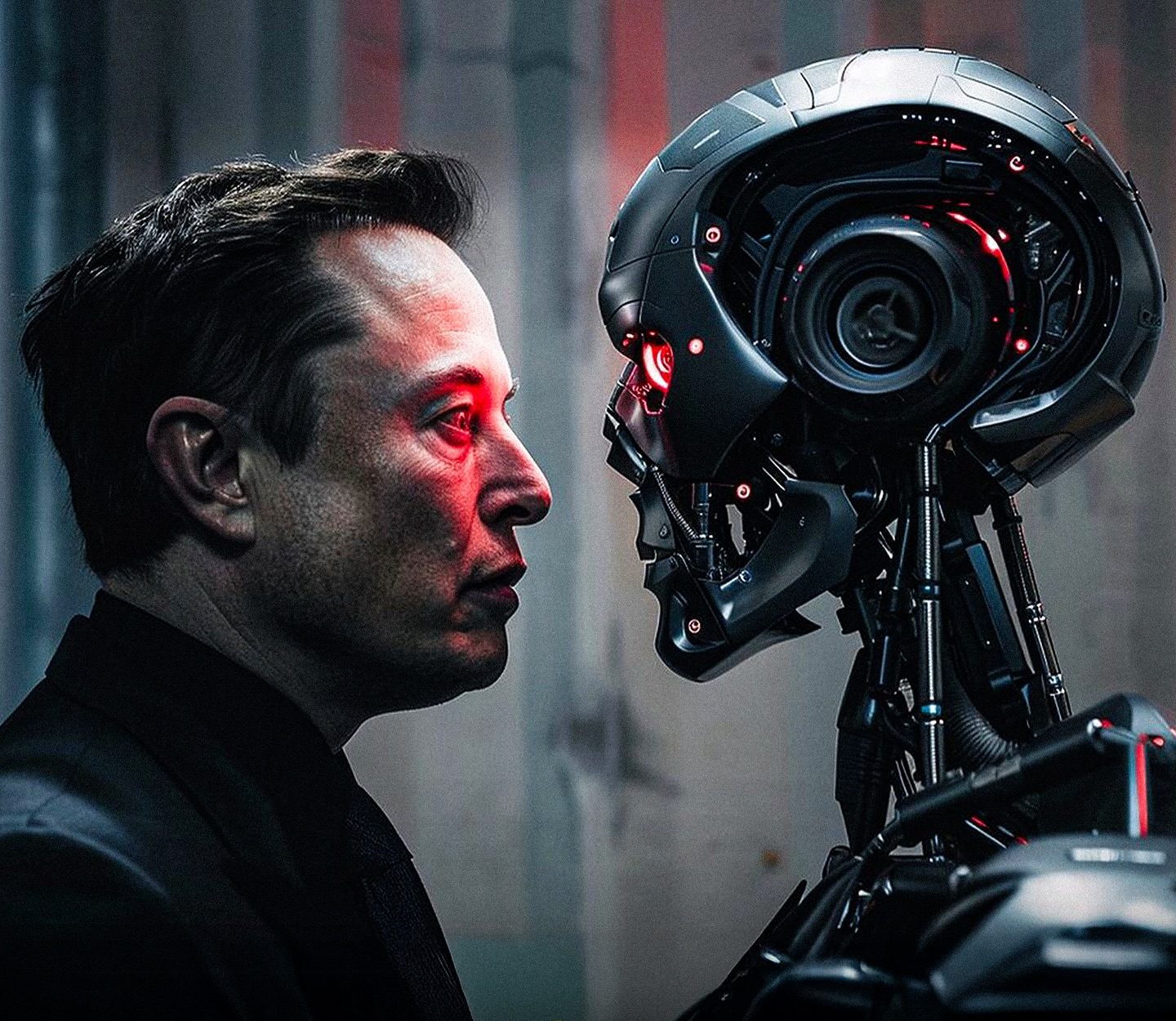Elon Musk Said Universal Basic Income Will Take Off Once AI Replaces All of Us
It’s not every day you see a billionaire inventor staring down a robot with glowing red eyes like it’s a moment from a sci-fi movie. Yet here we are, in a world where fiction is becoming reality faster than most of us can process.
The image of Elon Musk standing face-to-face with a hyper-realistic humanoid machine is chilling. It feels like a glimpse into the future — a future where AI might not just assist us… but replace us entirely. But what makes this image more haunting isn’t just the cold stare of the robot. It’s the bold statement beneath it:
“Elon Musk said universal basic income will take off once AI replaces all of us.”
Let that sink in for a second.
Musk isn’t just throwing out a wild theory. He’s been warning us for years — not just about the rise of automation, but about the deeper consequences that come with it. And now, as AI gets smarter every day, that warning doesn’t sound like a sci-fi plot anymore. It sounds like a countdown.
Imagine waking up one day and realizing your job is gone — not because you were fired, not because your company shut down — but because a machine learned how to do it faster, cheaper, and better. No sick days. No salaries. No complaints. Just pure efficiency.
This isn’t hypothetical anymore.
From customer support to creative writing, from factory work to software development — AI is already creeping into industries we once thought were untouchable. The writing is on the wall. But instead of panic, Elon Musk offers a strange kind of reassurance:
If AI takes all the jobs, universal basic income (UBI) will rise.
Basically, governments will have to pay everyone — not just the poor, not just the unemployed — but everyone, just to live. Because if no one is working, how else will we survive?
Sounds utopian. But also terrifying.

Now let’s pause and reflect on the second image — Musk, sitting deep in thought, hands clenched, eyes heavy.
His quote reads:
“If a computer can do everything better than you, does your life have meaning?”
That hits hard.
Because this isn’t just about money or jobs. It’s about identity.
For most of us, work is more than just a paycheck. It gives us purpose. A reason to get up. A place in the world. So what happens when machines do it all better? What happens when we’re no longer “needed”?
This question might seem philosophical, but it’s rapidly becoming practical.
If the world moves to a UBI-based economy, where we don’t “have to” work — what do we do with our time? More importantly, what do we do with our minds? Do we fall into depression? Do we chase art, passion, family, nature? Or do we just scroll, numb, while AI takes the wheel?
Musk’s expression in that photo says it all. He’s not proud. He’s worried. This isn’t a boast — it’s a warning wrapped in concern. Even the man building this future isn’t fully sure if we’re ready for it.

Then comes the third image — Musk again, this time almost smirking, but not with joy. The words beneath him say:
“Probably none of us will have a job.”
He doesn’t mean it sarcastically. It’s just the blunt truth.
Think about it. AI isn’t limited by physical strength, sleep, emotions, or human error. It can learn in seconds what would take us years. And it doesn’t need a break.
The acceleration is real. What started as calculators, then became computers, then the internet — has now evolved into neural networks, large language models, and autonomous systems.
Jobs that took generations to master are now being performed by code. And it’s not just manual labor — it’s creative work, decision-making, even art.
So where do humans fit in?
That’s the golden question.
Maybe we’ll transition into roles that only humans can do — empathy-driven fields like counseling, caregiving, storytelling. But even there, AI is learning fast. From therapy chatbots to emotion-detecting algorithms, it’s closing the gap.
The world Musk is hinting at isn’t dystopian. It’s just… radically different. And it’s happening whether we like it or not.
So, what now?
Do we fight this change? Do we try to pause technology, slow it down, regulate it?
Maybe to some extent. But let’s be honest — once innovation starts, it rarely stops. The smarter move might be to prepare — mentally, emotionally, politically.
If UBI is truly the future, it won’t just be about surviving without jobs. It’ll be about rethinking what it means to live a meaningful life.
Will we build communities, create art, travel, connect?
Or will we fall into boredom, isolation, or worse — a world where AI owns not just our labor, but our minds?
Elon Musk isn’t asking us to panic. He’s asking us to think. To be ready. To not sleepwalk into a future we didn’t choose.
The robot he stares at in that image isn’t just metal and code.
It’s a mirror.

